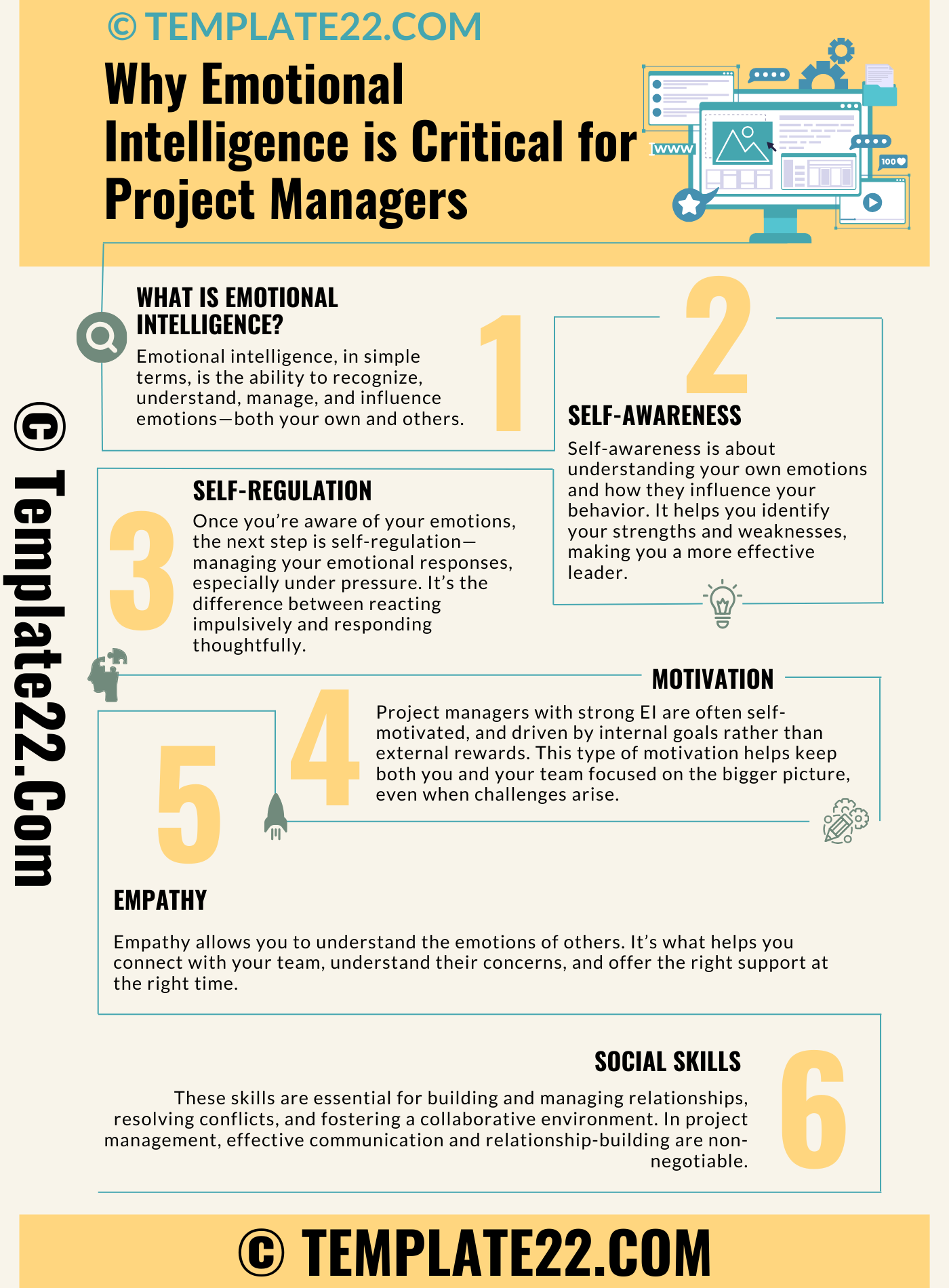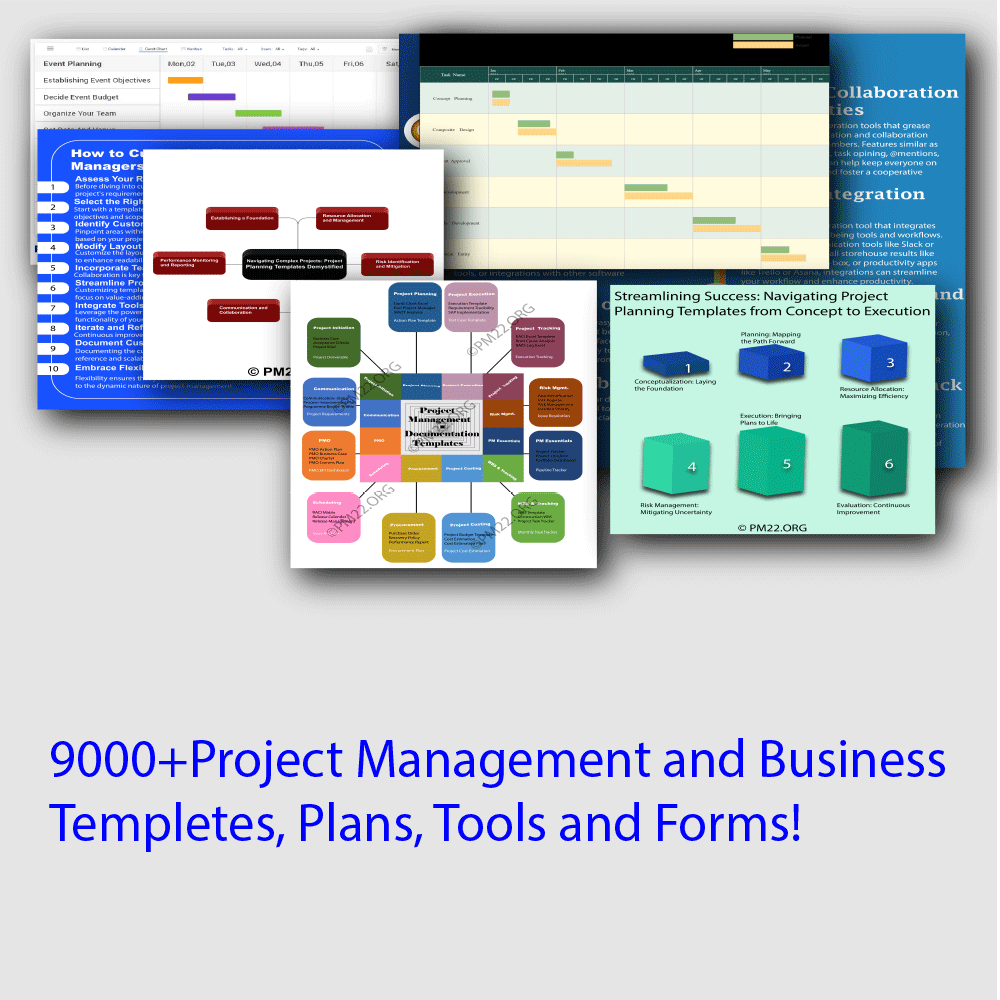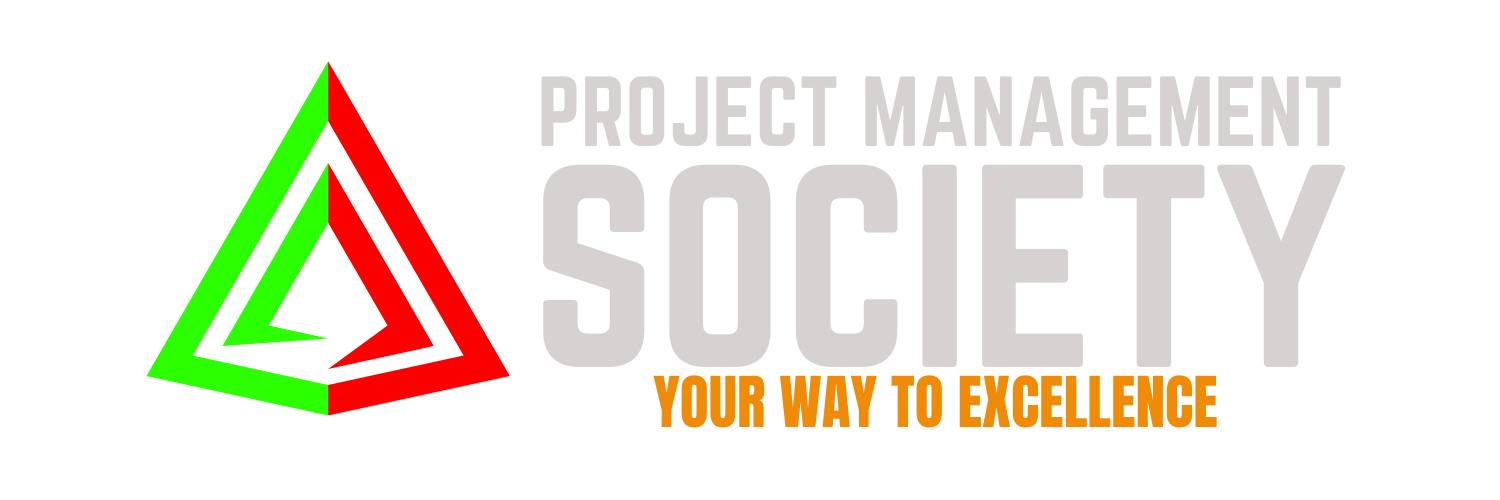 As project managers, you often focus on deadlines, budgets, and deliverables. But one crucial element that sometimes gets overlooked is Emotional Intelligence in PM. What if I told you that EI could be the game-changer that not only helps you lead your team more effectively but also ensures the success of your projects? Let’s dive into why emotional intelligence is critical for project managers.
As project managers, you often focus on deadlines, budgets, and deliverables. But one crucial element that sometimes gets overlooked is Emotional Intelligence in PM. What if I told you that EI could be the game-changer that not only helps you lead your team more effectively but also ensures the success of your projects? Let’s dive into why emotional intelligence is critical for project managers.
What is Emotional Intelligence?
Emotional intelligence, in simple terms, is the ability to recognize, understand, manage, and influence emotions—both your own and others. It’s about self-awareness, empathy, and interpersonal skills. For a project manager, these skills can significantly impact team dynamics and project outcomes.
The Key Components of Emotional Intelligence
Before we jump into why EI is vital, let’s break it down into its core components:
- Self-Awareness
Self-awareness is about understanding your own emotions and how they influence your behavior. It helps you identify your strengths and weaknesses, making you a more effective leader.
- Self-Regulation
Once you’re aware of your emotions, the next step is self-regulation—managing your emotional responses, especially under pressure. It’s the difference between reacting impulsively and responding thoughtfully.
CLICK HERE TO DOWNLOAD 300+ PROJECT MANAGEMENT TEMPLATES & DOCUMENTS IN EXCEL
- Motivation
Project managers with strong EI are often self-motivated, and driven by internal goals rather than external rewards. This type of motivation helps keep both you and your team focused on the bigger picture, even when challenges arise.
- Empathy
Empathy allows you to understand the emotions of others. It’s what helps you connect with your team, understand their concerns, and offer the right support at the right time.
- Social Skills
These skills are essential for building and managing relationships, resolving conflicts, and fostering a collaborative environment. In project management, effective communication and relationship-building are non-negotiable.
Why Emotional Intelligence Matters for Project Managers
So, why is emotional intelligence so critical for project managers? Here are a few key reasons:
- Building Stronger Relationships
Projects are all about people. Whether you’re dealing with stakeholders, team members, or clients, Emotional Intelligence in PM helps you build stronger, more trusting relationships. When people feel understood and respected, they are more likely to collaborate and stay committed to the project.
For example, a team member might be struggling with workload stress but hesitant to speak up. With emotional intelligence, you can sense this and initiate a conversation, offering support before it affects their performance or the project timeline.
- Enhancing Team Morale
A project manager with high emotional intelligence can uplift the team’s morale by recognizing achievements and providing constructive feedback. When people feel valued, they’re more engaged and motivated. This leads to higher productivity and better overall project outcomes.
- Navigating Conflict
Conflicts are inevitable in any project. Emotional intelligence equips you with the tools to handle disputes effectively. Instead of letting conflicts escalate, you can approach them with empathy, listen to all sides, and guide the team toward a resolution.
For instance, if two team members disagree on how to proceed with a task, instead of choosing sides, EI enables you to facilitate a productive conversation that respects both viewpoints and finds a middle ground.
- Managing Stress
Project management is stressful. Tight deadlines, scope changes, and unexpected roadblocks are part of the job. Emotional intelligence helps you manage your stress and, just as importantly, the stress levels of your team. By staying calm under pressure, you set a positive example for your team, ensuring that they remain focused and productive even in challenging situations.
How to Develop Emotional Intelligence as a Project Manager
Now that we’ve covered why emotional intelligence is essential, you might be wondering how you can develop these skills. Here are a few practical steps:
- Practice Self-Reflection
Take time to reflect on your emotions and reactions. After a stressful day, ask yourself: How did I handle that situation? Was my response productive? This practice helps improve self-awareness and self-regulation over time.
CLICK HERE TO DOWNLOAD 300+ PROJECT MANAGEMENT TEMPLATES & DOCUMENTS IN EXCEL
- Seek Feedback
Ask your team for feedback on your leadership style. Encourage honesty and openness. This can give you valuable insights into how your emotional intelligence is perceived and where you can improve.
- Active Listening
Empathy starts with listening. Practice active listening by fully concentrating on what others are saying rather than planning your response. This will help you better understand their emotions and concerns.
- Mindfulness
Mindfulness techniques, like deep breathing or meditation, can help you stay present and calm in high-pressure situations. By reducing stress, you’re better equipped to manage your emotions and maintain a positive attitude.
Conclusion: Emotional Intelligence Equals Project Success
In today’s complex work environments, emotional intelligence is no longer just a “nice-to-have” for project managers—it’s a must. From building stronger relationships to managing conflict and stress, EI helps you navigate the human side of project management, leading to more successful outcomes.
By honing your Emotional Intelligence in PM, you can transform not only your leadership but also the overall success of your projects. So, take the time to develop these crucial skills—you’ll thank yourself later.
